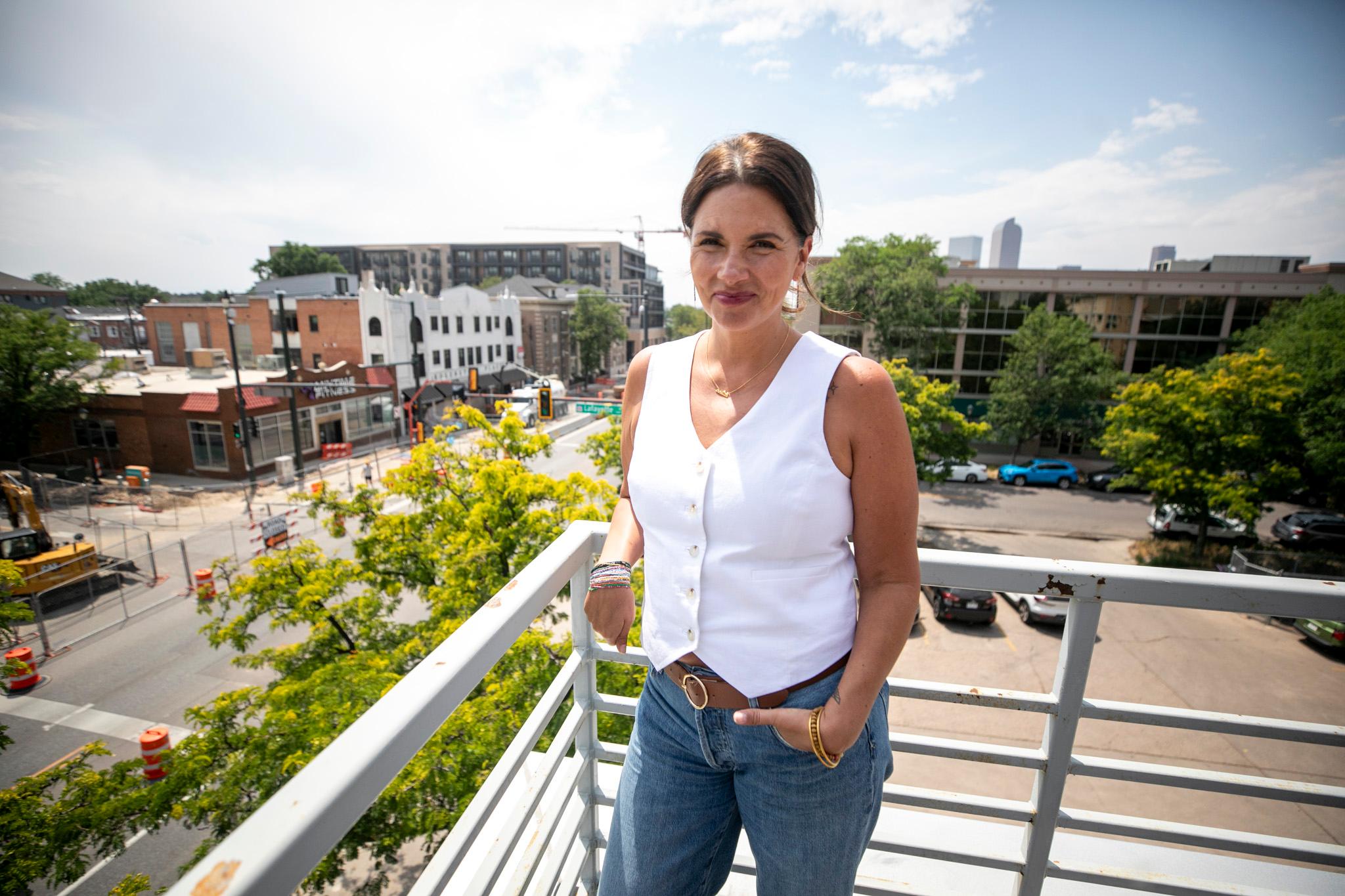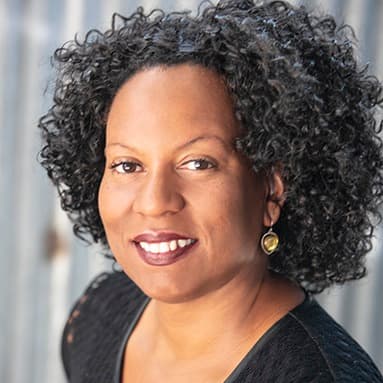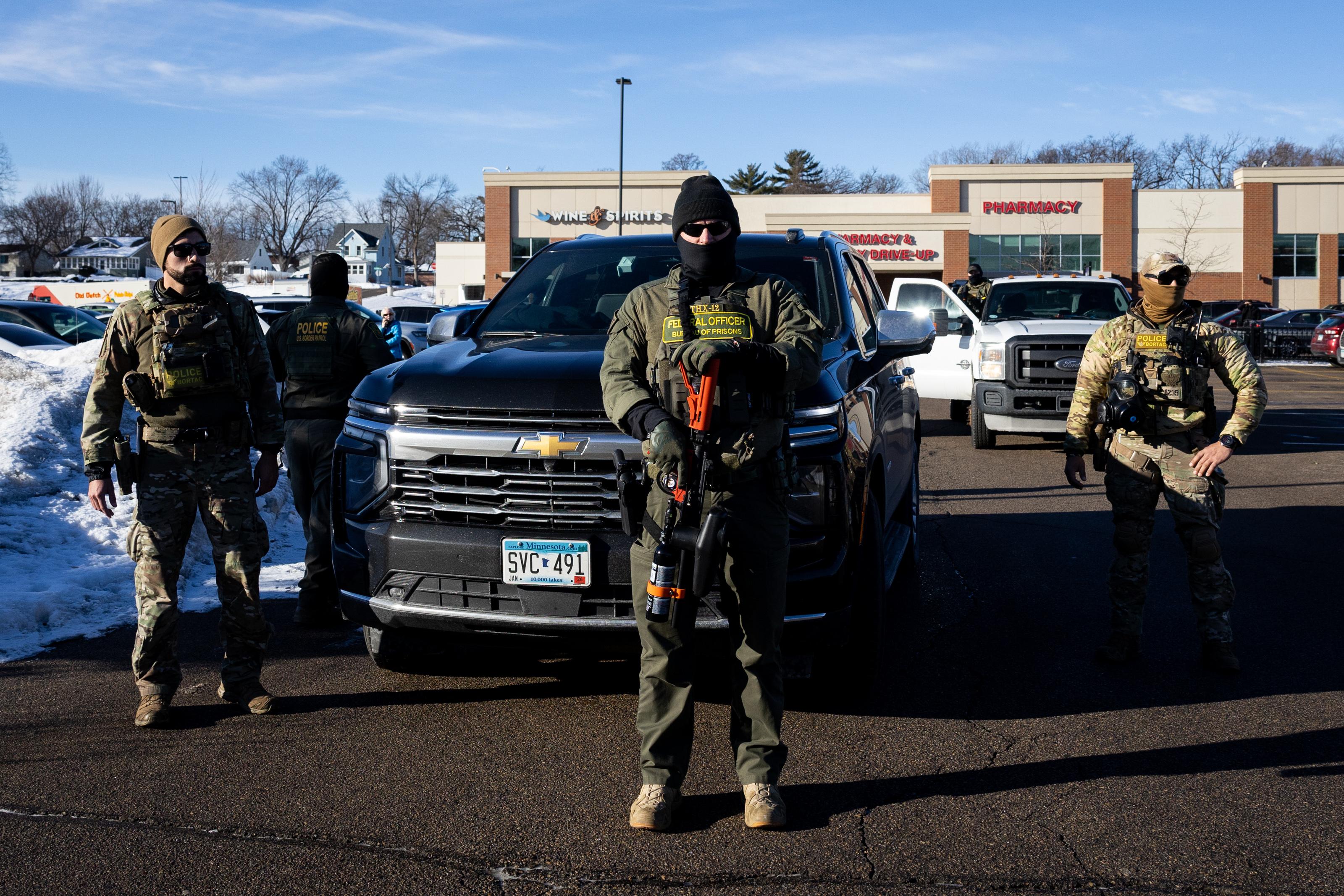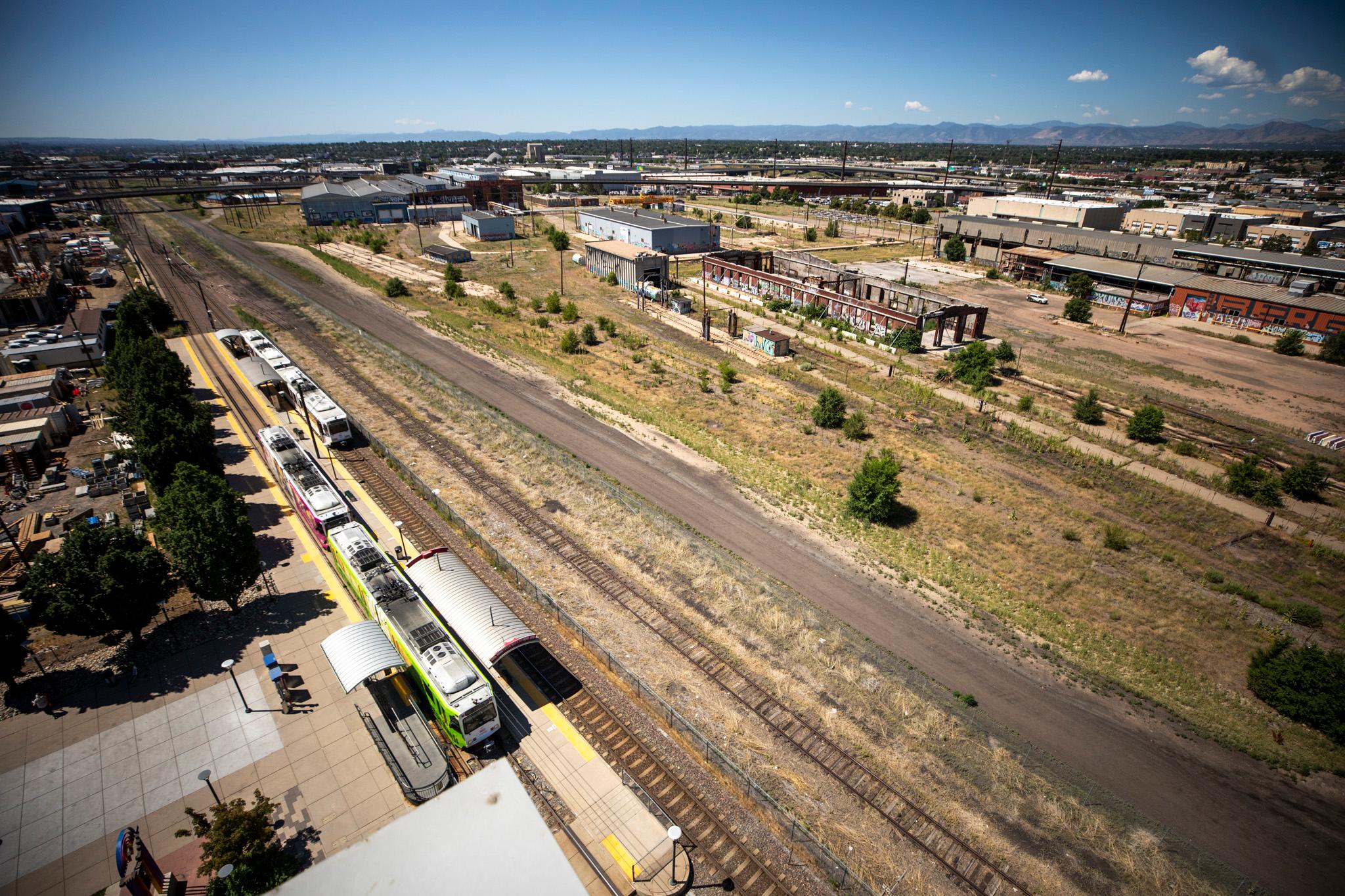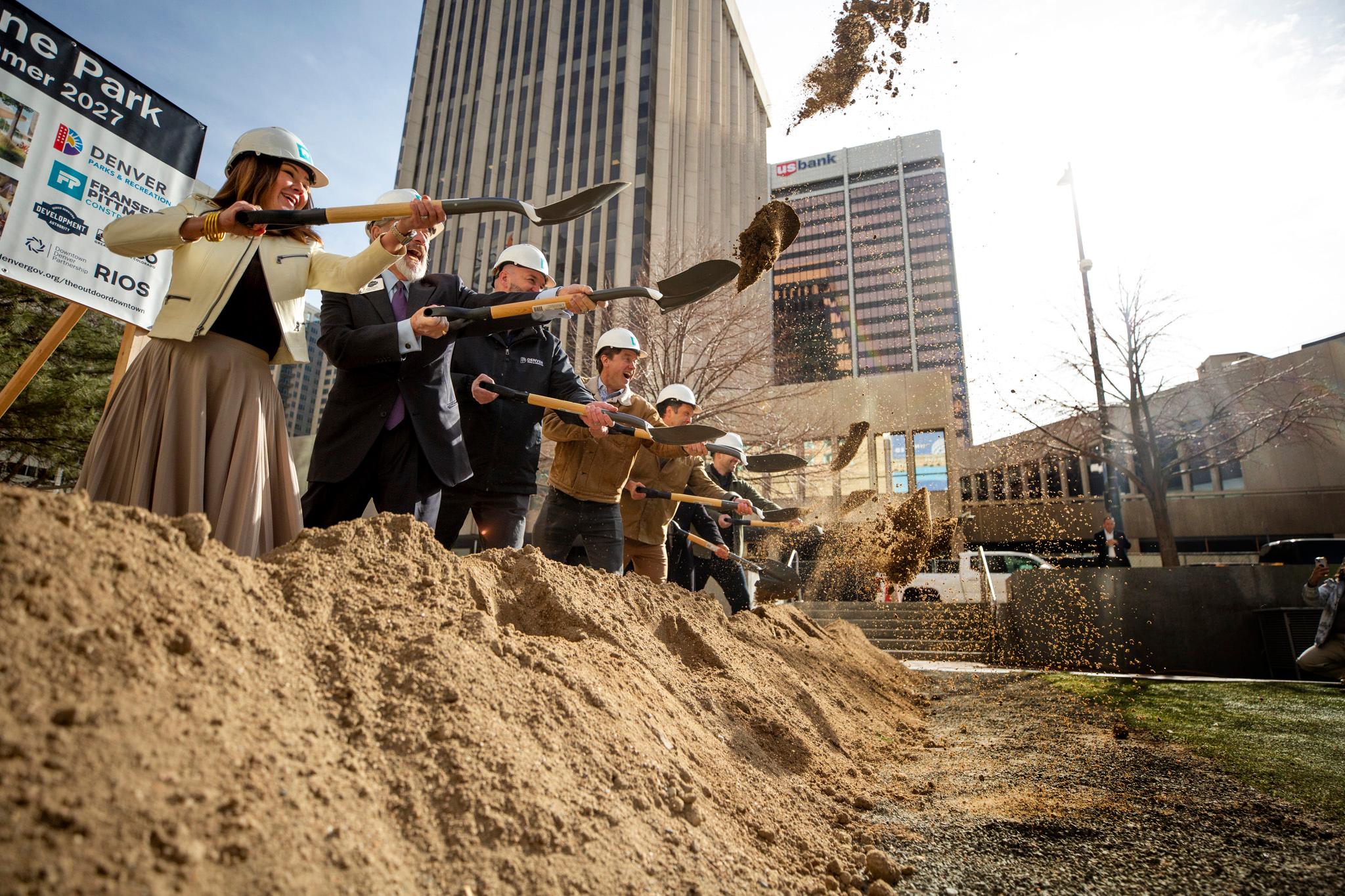Denver’s premier nonprofit serving the Rocky Mountain LGBTQ+ community has a new leader. Kim Salvaggio, 49, is the new executive director of The Center on Colfax, which hosts the city’s PrideFest and Pride parade while offering extensive community services.
Salvaggio comes to the Center after working at Rocky Mountain PBS and has been in her role since May. She sat for a free-flowing 45-minute interview with Colorado Matters Senior Host Ryan Warner earlier this month.
Salvaggio acknowledged that the Center had been hit by a drop in corporate giving amid President Donald Trump’s push to eliminate DEI, but she said the nonprofit had still set an ambitious fundraising goal this year.
She also took on some of the toughest topics in the LGBTQ+ community today. Salvaggio said the Center would continue to seek and accept donations from corporate sponsors, despite controversy over cuts to DEI programs.
She also said the Center would keep engaging with local police, and separately that she would work to “repair” community relations with the Anti-Defamation League that has drawn criticism for its staunch support of Israel amid its war in Gaza. Meanwhile, the Center could create a space for queer poetry and queer history related to Palestine, she said.
The new director also talked about the resilience of the LGBTQ+ community and her own lived experience that led her to take the job. Here are a few key takeaways from the July 17 conversation, edited for length and clarity.
On sponsorship funding for local Pride programming, which has declined since President Donald Trump resumed office with an anti-DEI agenda:
The Center raised $2.6 million from Pride events last year. It aimed to match that figure this year. As of June 30, it had raised only $2 million, but was still expecting more funds to come in.
Salvaggio noted that more than 80 percent of Pride fundraising goes to free programming from the community center.
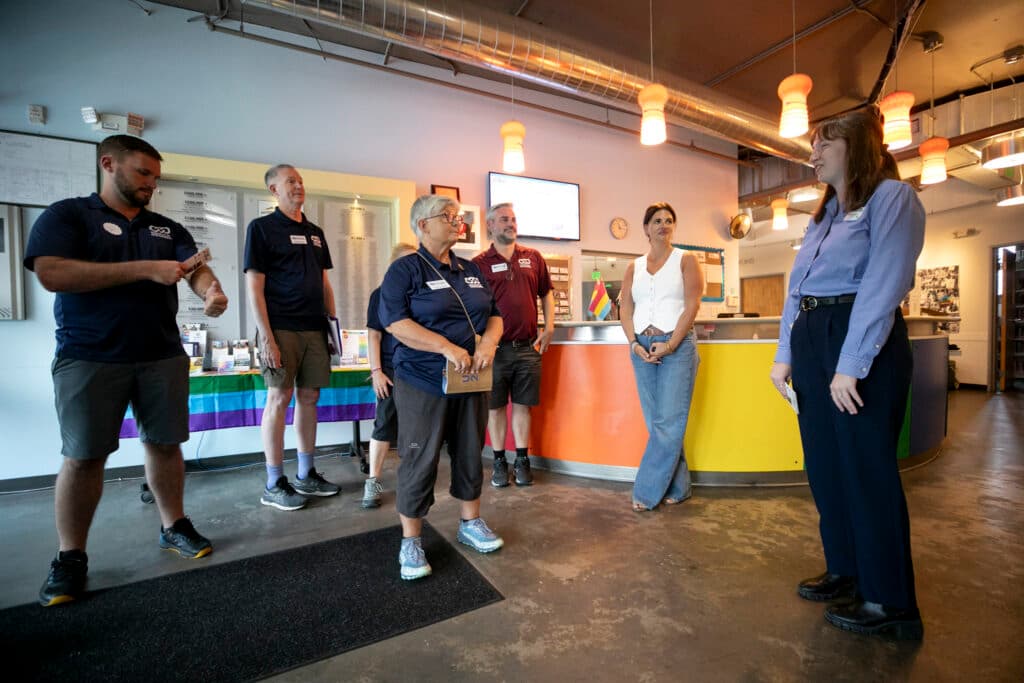
Salvaggio: We lost sponsors and our sponsors were heartbroken that they had to pull back some of their funding, and that was due to executive orders. That was due to people that had to pull back on DEI efforts. It was through the tireless work of our staff — that you lose sponsors, but then you find some sponsors that are willing to give a little bit more than maybe they did. So it ends up that we're actually going to be really close to the goal, [and] by Friday we should have the final numbers. Right now I can tell you we're really close to hitting our goal.
I think the conversation around sponsorships, that sometimes gets lost in the quick soundbites, it's not as simple as “a sponsor pulled out.’ A lot of times, these sponsors really do want to show up for the queer community and support, especially their employees, and because of new legislation, they weren't able to. That's why it's heartbreaking. . . .I think it's specifically with the Trump administration rolling back.
When asked what made her want to lead the Center on Colfax, Salvaggio perked up, saying her interest flows from her own life.
Salvaggio: So obviously, it's my lived experience. I am a part of the queer community and to have the opportunity to lead within my own community is something that's really important to me personally. I would say to myself, ‘The only way I would ever leave public media is if it was an opportunity to lead a queer organization.’ And so the opportunity came. I went through a long period of imposter syndrome, and then hit the button and applied, and now, here I am.
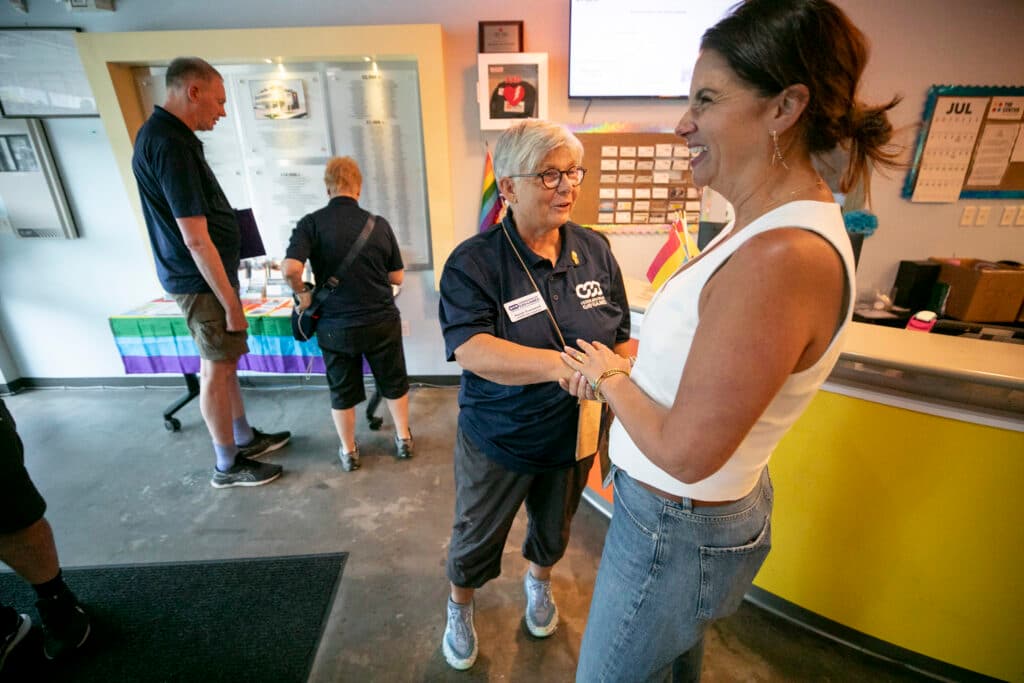
I think imposter syndrome is something a lot of us live with, especially when you are a part of a marginalized community and it is not talked about enough. [We go through the thought process of asking]: ‘Am I the right person to lead this? What do I have to bring to this community?” And it ebbs and flows. There's some days that I'm like,” I am so the person to do this,” and other days where I'm like, “I have lost my mind. What am I doing?”
Salvaggio said she has the lived experience to connect to the issues and the community she works with:
Salvaggio: I think my life and my identity is already politicized. I'm a thriving queer woman. I'm married to a non-binary person and I have a trans daughter. My life by definition has already been politicized in this role.
About the visibility of the queer community:
Salvaggio: We're not going anywhere. We're here, we're resistant, we're resilient. I think it's all about how we come together and recognize that our liberation is linked together and that's where I think we saw the community show up ... [People are saying] “I'm here. I'm queer. I'm going to continue to thrive regardless of how you try to legislate my existence.”
On the Center’s Relationship with the Denver Police Department:
Salvaggio: It is a complicated relationship. I am aware to the deepest level of how police and policing queer people is a really difficult and dark history. I'm also aware of some of our partners at the Denver police station who are members of the queer community that are working with us from within that system to provide protection in a way that feels safe for our community.
We've had very hard conversations about the change that I'm hoping they'll be able to usher from within the police – the policing of queer people. And they're a part of our community. So it is a partnership with them more than anything.
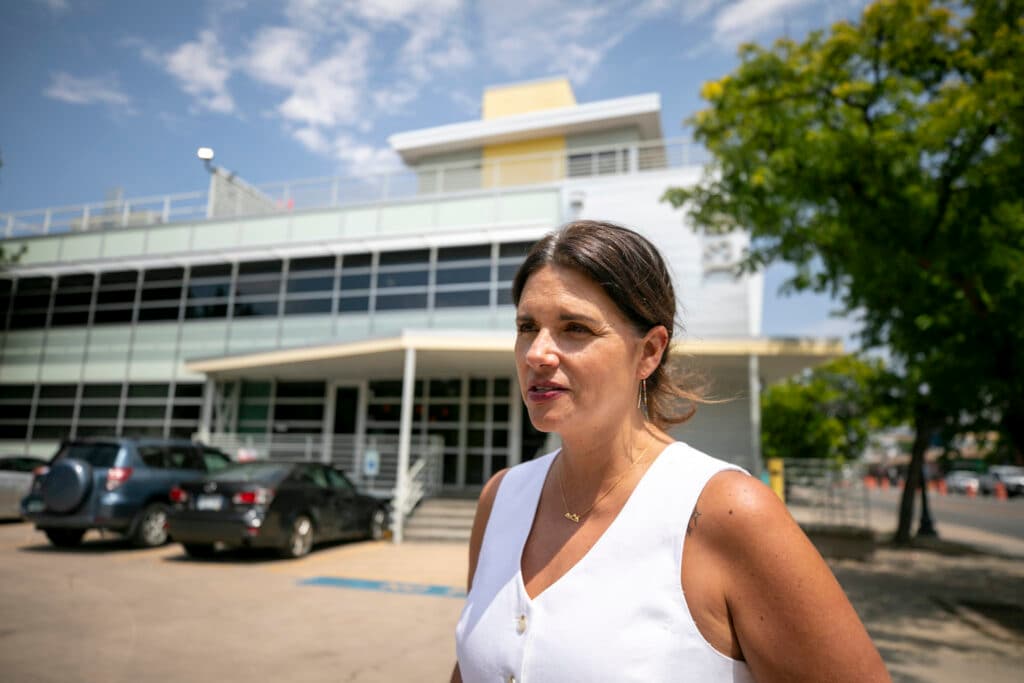
The question I get all the time is, “Why is there a police presence at Pride? ... It doesn't feel like something police should be a part of.”
I think you have three choices with any type of system, and this is what I would say to the members of our queer community who are a part of the Denver Police Department: You can leave and not be a police officer. You can ignore this painful history, or you can be a part of the change.
I am opting right now to be a part of the change and to put my faith in the members of the police department that are a part of our community and want to work with us towards change. . . . Also, there's people that are going to feel safe with a police presence there.
On some of her plans for the Center on Colfax:
Salvaggio: Creating a space for queer poetry and queer history around the Palestinian movement and Palestinian identity. Absolutely, that's something we can do.
Some of the other things [our community has] asked for is to divest from corporate sponsorships. I cannot make that promise right now. We would lose so much revenue, we wouldn't be able to provide the free services to our community if we divested from all corporate sponsorships.
I think our primary responsibility right now is the Denver metro area. But later today, some of my meetings are about how we can extend some of our Pride to other places in the state – to some of those more rural Pride celebrations that you see. I would love for us to get there. That's going to obviously take support and funding and partnerships across the state, but I believe we can get there.
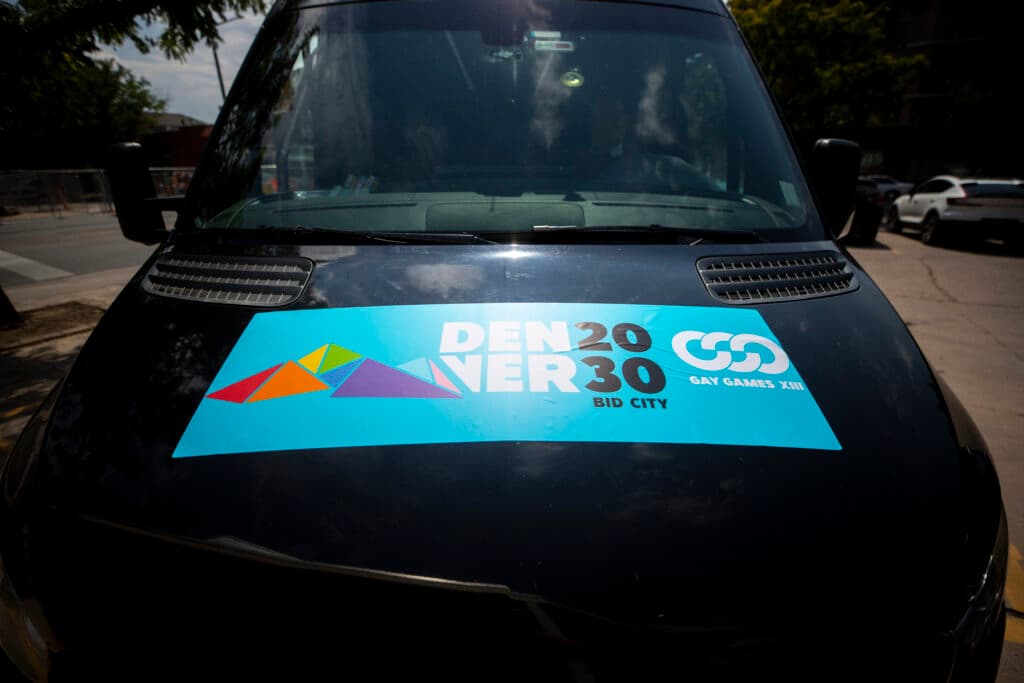
Salvaggio has heard requests that the Center distance itself from the Anti-Defamation League. The ADL has drawn criticism for its strong defense of Israel, including its belief that anti-Zionism and some criticisms of Israel are a form of antisemitism.
The Center doesn't currently have a relationship with the ADL, but Salvaggio said she is assessing the Center's approach to the organization anyway:
Salvaggio: [I’m at] the same place I am with divesting from specific sponsors. [Some], especially Jewish Voices for Peace, feel that the Anti-Defamation League has not been inclusive and has been using language that is damaging to our queer Palestinian community ...
So, I am having the conversations with them and hope by the first week of August I'll be able to have a very distinct point of view in my own education, which is outside of my own lived experience [to better understand] what's been the harm [of the ADL’s rhetoric] and how can we work towards repair and how can the Center use its power and privilege to help facilitate that.
